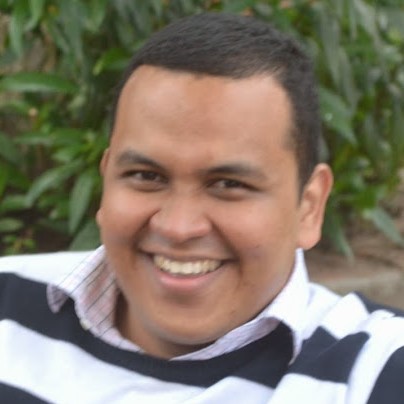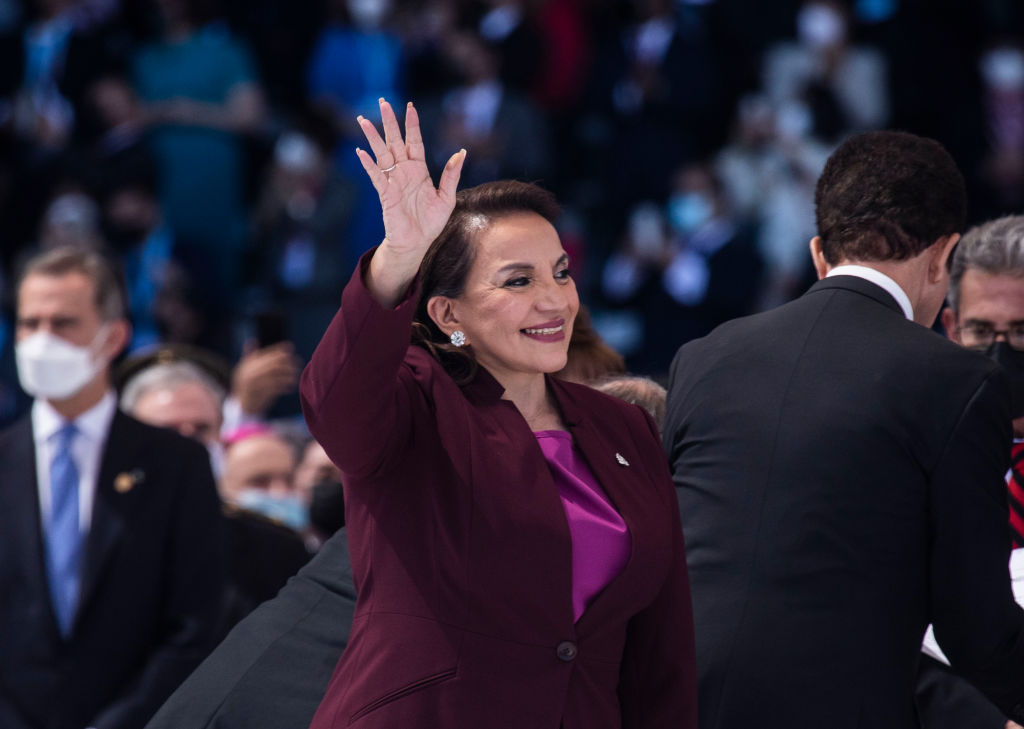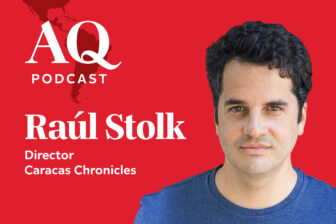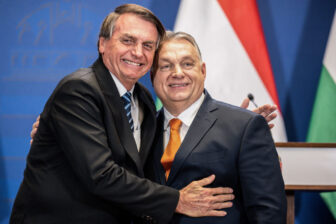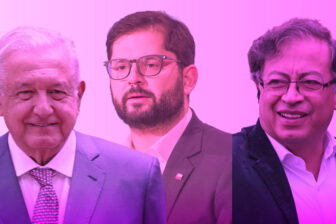TEGUCIGALPA — President Xiomara Castro has been in office for four tumultuous months after being elected on a platform of cleaning up the country’s politics after her predecessor was extradited to the United States on drug charges. Her administration has delivered some progress on key issues and improved relations with the U.S., which now hopes Honduras can be a key regional partner given deteriorating U.S. relationships with Guatemala, El Salvador and Nicaragua.
Castro’s government has proven relatively pragmatic, focused on gradual improvement. However, political limitations and deep structural problems will continue to drive crises of hunger, crime and migration that have been further inflamed by global economic disruption.
Despite these challenges, Castro has been a steady hand so far. She won the presidency after coming to a power-sharing agreement with rival candidate Salvador Nasralla and his PSH party that led Nasralla to drop out of the race and back Castro’s candidacy. As part of this deal, a PSH deputy was to be named President of Congress.
However, when Castro took office, members of her own LIBRE party demanded that position for one of its own. Castro held strong, negotiated deftly with her own party and ultimately ensured the original agreement was honored.
This helped maintain the ruling coalition and allowed Castro to take important steps on corruption and energy that earned her a high approval rating of 61% three months into her term, according to pollster Mitofsky.
She oversaw the extradition of former President Juan Orlando Hernández, and has taken steps to fulfill her campaign promise of welcoming a new UN-backed anti-corruption commission to the country. (Hernández had dismantled a similar commission in 2020.) Castro also convinced Congress to repeal the so-called “Secrets Law,” which had restricted access to information on contracts and trusts for up to 30 years.
These steps are themselves important. Since a 2009 coup that deposed President Manuel “Mel” Zelaya—who is Castro’s husband—organized crime and drug trafficking became deeply enmeshed with all levels of the state, Carlos Hernández, the director of the Association for a More Just Society (ASJ), told AQ.
He added that cleaning up the political system is a gargantuan task that will take time. Even within Castro’s ruling coalition, “local and department-level leadership maintain (some of) the same party structures that have been tied to drug trafficking,” Hernández said.
Further, Castro’s commitment to cleaning house has been called into question after the passage of an “Amnesty Law” that may shield powerbrokers in her own party from prosecution for corruption. (The administration said the law is designed to end political prosecution of officials ousted by the 2009 coup and people who protested against subsequent governments.)
This has raised fears that Castro will politicize anti-corruption investigations and important appointments. She will be guiding Congress’ nomination process for a new Supreme Court of Justice in January 2023 and a new attorney general in June 2023, and civil society groups are proposing reforms to make the appointment process more transparent.
The fate of these nominations, the reform proposals and the new UN-backed commission will be key indicators of how much action against corruption and organized crime the public can expect from the Castro administration.
Resistance from the opposition in Congress will be a key factor. The opposition—including the National Party, which was led by Hernández—recently blocked impeachments of Attorney General Óscar Chinchilla and Supreme Court of Justice President Rolando Argueta, both Hernández appointees, after a congressional panel found that they improperly favored criminal defendants sought by the U.S. for extradition.
Her own coalition also limits her ability to deliver on campaign promises. Castro had pledged, for example, that she would immediately legalize the emergency contraceptive pill, banned since the coup in 2009. Castro’s Council of Ministers could simply reverse the ban, but the PSH led by Nasralla is heavily influenced by social conservatives and the Catholic Church.
Health Minister José Manuel Matheu, a conservative Catholic doctor and PSH deputy, said that this was not among his priorities and that he would consult on the issue with Catholic Church authorities.
The Castro administration did manage to pass a major energy sector reform to improve transparency and make electricity free for the poorest 1.3 million households, or roughly 40% of the population. The reform is not a silver bullet for fraud, high prices and lack of investment, but it took “necessary steps” in the right direction, AJS energy analyst Edgar Aguilar told AQ.
The reform also dealt the government a significant fiscal blow, as was the Castro administration’s move to calm national strikes over gas prices by cutting gasoline by USD 40 cents and diesel by USD 50 cents per liter.
These fiscal sacrifices amount to around 2% of GDP and bring Honduras’ debt to about 37% of GDP, attracting criticism from some economists. “These isolated moves are not efficient and are no more than efforts to keep campaign promises,” economist Ismael Zepeda told AQ.
The Castro administration should have focused on streamlining budgets and cutting out corruption rather than boosting spending so dramatically, added Zepeda, who works at the Honduras Social Forum for External Debt and Development.
But the Castro administration argues that the economic disruption wrought by the pandemic and global inflation call for extraordinary measures, especially given that they are fueling rising crime rates.
Castro has so far been unable to reduce the country’s intense street crime and gang violence that is a primary driver of migration to the U.S. She has also been conspicuously silent on migration, and her administration has not announced any strategy to tackle the issue.
Radical change is unlikely, and chronic crises will endure. But it seems that meaningful change is slowly materializing.
—
Suazo is an investigative journalist based in Tegucigalpa who writes for Revistazo and has published with The New York Times and OCCRP.

